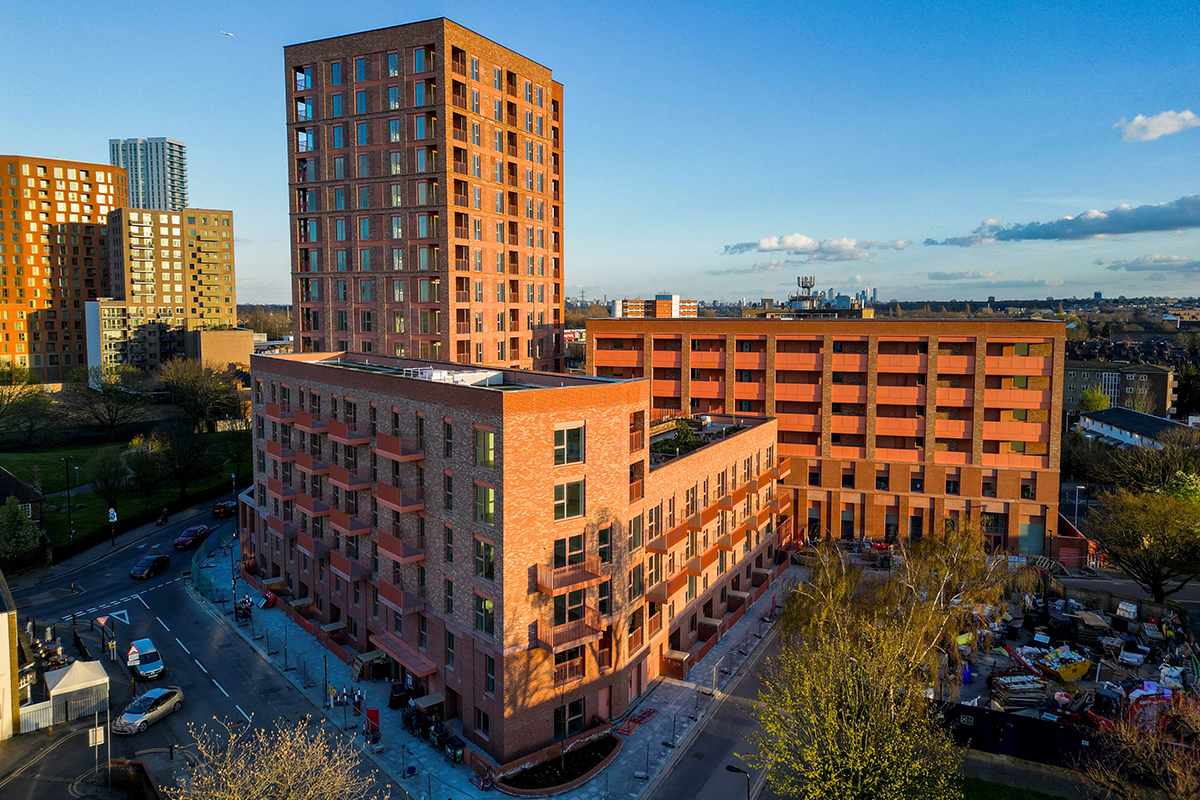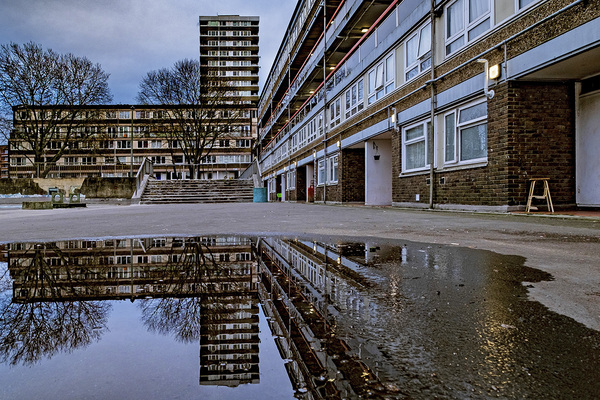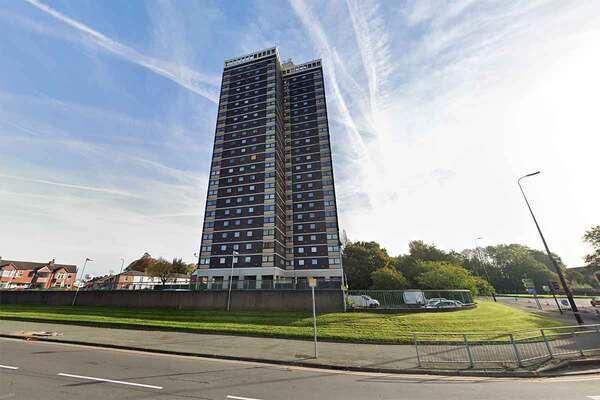You are viewing 1 of your 1 free articles

The Wild West exempt accommodation sector requires urgent and joined-up accountability
Lack of regulation has left vulnerable people living in unsuitable exempt accommodation, says Ashley Horsey. No one intervention will fix the problem
Birmingham plays host to the largest private rented sector in the UK outside of London. Over the next decade, property consultant CBRE predicts that Birmingham will be home to another 10,000 rented households.
Indeed, the build-to-rent market, an often luxury-like housing type built for the sole purpose of renting, is flourishing in the city, with investment ploughed into sky-high affluent accommodation from the likes of Legal & General, Nikal and Goldman Sachs.
“Nearly 2% of the entire population of Birmingham lives in this precarious and often ill-suited form of accommodation”
But while build-to-rent booms in Birmingham, on the doorsteps of these comfortable complexes, the city is also witnessing a staggering rise in a housing type that feels a million miles away from the hotel-style offerings of the luxury market: exempt accommodation.
In 2019, we funded research alongside the University of Birmingham and housing charity Spring Housing into the exempt accommodation sector in Birmingham, which was undertaken by Thea Raisbeck, a leading research associate at both organisations.
Ms Raisbeck found that 11,000 people were being housed in this insecure and unregulated form of housing. This allows landlords – who can claim exemption from housing benefit restrictions due to providing loosely defined “more than minimal… care, support and supervision” services to their tenants – to charge exorbitant rents compared with traditional social landlords and the mainstream private rented sector.
This is not to say that exempt accommodation is of itself a bad thing, indeed, when delivered well it is an effective housing option in providing a roof over someone’s head. However, the under-regulated nature of the sector has led to gaps in the system which some exempt landlords have exploited.
In the two years since we published the Exempt from Responsibility? report, the number of claimants in Birmingham has doubled to 22,000. For context, this means nearly 2% of the entire population of Birmingham lives in this precarious and often ill-suited form of accommodation.
This is urgent. Just seven years ago, the number of claimants was less than 4,000. This staggering rise is indicative of a failure to properly protect vulnerable people and a lack of regulation and guidance from policy-makers which has created a housing Wild West in Birmingham.
That is not sensationalised. Last year, Birmingham City Council found a “concerning prevalence” of exempt accommodation providers had links to organised crime, including drugs and modern slavery.
But while these crises may catch the headlines, the causes in the systemic failure of the exempt sector are far more complex. There are a myriad of issues at stake, from planning laws to the underfunding of transitional supported housing services such as for ex-prisoners – all of which are underpinned by an enormous gulf in good-quality, secure accommodation in the UK and the dire need for the country to build more social housing.
“A huge proportion of the diverse individuals living in exempt accommodation have no ties to the area and are forced to migrate based on housing stock, rather than a needs-based system”
Those issues are endemic in Britain, and will not be solved by any one policy change or regulatory reform. Nor is Birmingham unique. Cities across the country are facing similar issues, but the number of claimants is acutely high in the West Midlands city.
A key part of this is that there is a large amount of somewhat appropriate housing for claimants, albeit only appropriate within the current framework. This has led to a large number of Birmingham’s claimants having wide, geographic disparity and ‘points of origin’, meaning a huge proportion of the diverse individuals living in exempt accommodation have no ties to the area and are forced to migrate based on housing stock, rather than a needs-based system.
None of this is to say that progress hasn’t been made in certain areas and that regulation, namely in the form of the Regulator of Social Housing (RSH), hasn’t been successful. The RSH is making valuable inroads and has begun a crackdown on dodgy exempt accommodation providers, particularly in Birmingham.
But if we are to protect the most vulnerable in society – which the research demonstrates have the most unique housing support needs, such as women fleeing domestic abuse, rough sleepers, refugees and migrant groups and individuals experiencing substance abuse issues – then the RSH cannot do so alone.
This must now be a joined-up approach from all stakeholders: local authorities, housing providers, private developers, charities and the government.
“This is an issue that no one organisation or agent can manage. It is a nationwide crisis that has too many variables at play. There is now an urgent need for stakeholders to meet and discuss the solutions”
The government, to its credit, is acting. The Ministry of Housing, Communities and Local Government (MHCLG) has launched a series of housing pilots, the findings of which are due to be published later this year, in an effort to identify the national needs in reforming the sector, to improve the quality of exempt accommodation across the country and to crackdown on poor providers.
One of the MHCLG’s pilots includes a £1m partnership with Birmingham City Council, which has also launched its own charter of rights with Spring Housing. The charter will provide a clear framework for tenants and their families so that they are aware of the services they should expect and provide a quality benchmark.
The council’s new quality standards, which includes a “multi-disciplinary team of inspectors and social workers to carry out more inspections on properties” should also improve standards and protect vulnerable users from exploitation.
But the level of demand for transitional housing services is ever-growing, while a waning provision of suitable housing mars the progress that has been made.
This is an issue that no one organisation or agent can manage. It is a nationwide crisis that has too many variables at play. There is now an urgent need for stakeholders to meet and discuss the solutions.
We feel there is also a real need for the wider charitable and public sectors, whose clients are frequent users of exempt accommodation, to become more aware and to know the issues that are going on.
We would suggest that there remains a duty of care to understand that simply lining up a roof over someone’s head when they are leaving prison, or moving on from a refuge, is not good enough when that roof may be being provided by an exploitative, unregulated or inappropriate landlord.
This is no easy task. And the role of charities, such as Commonweal Housing, as independent brokers rather than vested interests, is to ensure that all stakeholders have an understanding of the issues at play here and the urgent solutions to them.
Our focus is now on building awareness and understanding, but some level of consultation and discussion must also take place in the coming months.
As the private rented sector booms and investors’ pockets burgeon, our industry must recognise the alarming lack of viable housing for the most vulnerable, and the concerning reality of an unregulated and unsafe exempt accommodation sector.
Ashley Horsey, chief executive, Commonweal Housing
Sign up for our daily newsletter
Already have an account? Click here to manage your newsletters













